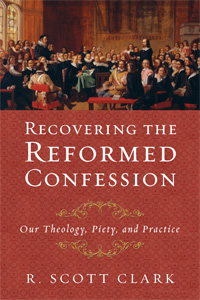In response to the post on Bob Godfrey’s Unexpected Journey, Arthur writes to ask, “So does someone who does not hold to every point of doctrine in the Reformed confessions be considered “Reformed”. More to the point, can a credobaptist not be . . . Continue reading →
Young Restless and Reformed
Young, Restless, and Arbitrary?
I’m watching a video interview of Collin Hansen, author of Young, Restless, and Reformed. At about 21 minutes into the interview I heard a familiar voice: WSC alumnus Jonathan King (MA, HT), now a PhD student at TEDS. You might know JK . . . Continue reading →
The Problem of the Minimalist Definition
Yesterday someone sent a link to an essay posted on a seminary website. In the comments that follow I am not speaking to the seminary per se but I do want to challenge the implied premise of the essay. The fundamental question . . . Continue reading →
Who or What Defines "Reformed?" (Updated)
In response to the post on Bob Godfrey’s Unexpected Journey, Arthur writes to ask, “So does someone who does not hold to every point of doctrine in the Reformed confessions be considered “Reformed”. More to the point, can a credobaptist not be . . . Continue reading →
He’s Not Young or Restless, But He is Reformed!
Stephen Ley has an interesting review and comparison between Colin Hanson’s “Restless” and Bob Godfrey’s Unexpected Journey. I’m glad that people are becoming enthused about elements (mainly soteriology) of the Reformed faith. One problem with the “Restless and Reformed” approach is that . . . Continue reading →
Black and Reformed: A Review (pt 2)
Here is part 1 of this review. A Preface and A Challenge Before I make some criticisms of this book I want to repeat that it is an important book that needs to be read. It especially needs to be read by . . . Continue reading →
Black and Reformed: A Review
This is an important book for at least a four reasons. First, it is the first book of its kind demanding and giving compelling reasons why white Reformed Christians should think about and pay attention to and learn from the experience of . . . Continue reading →

